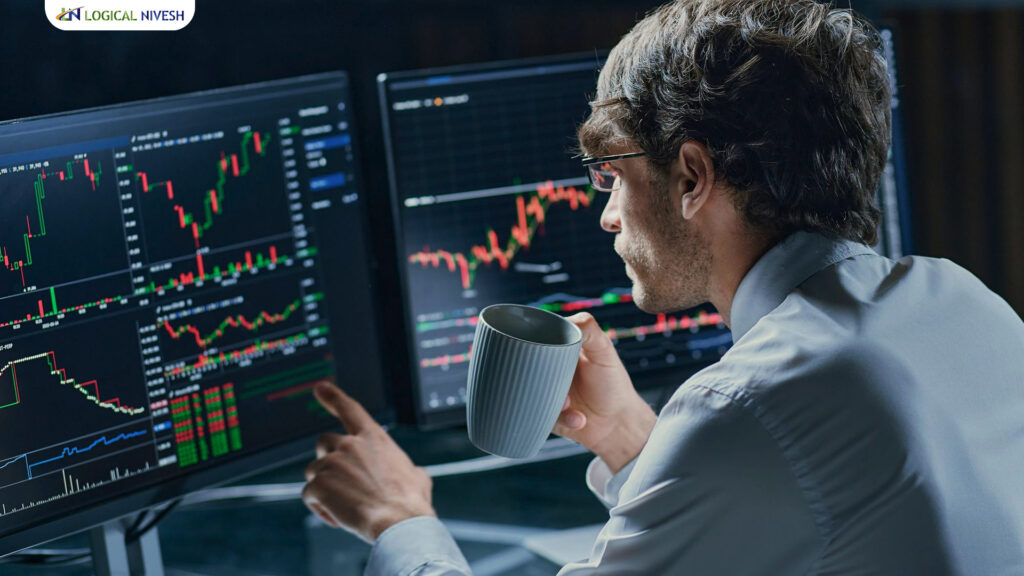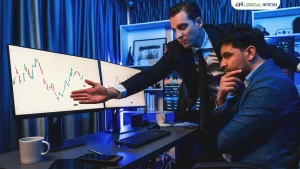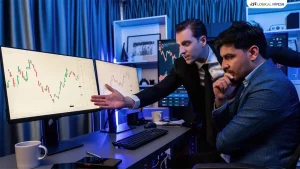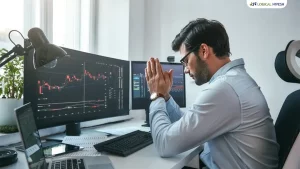Trading Psychology is the term that is an amalgamation of the emotional as well as mental status of a trader and the rollercoaster of a journey he goes through while making any trade-related decision. Their knowledge, expertise, and experience play a significant role in assisting them in making the right and optimum decision in the trading world.
Our SEBI Registered Research Analyst, Ashutosh Bhardwaj is sharing his two cents on the importance of trading psychology and the cognitive-emotional biases a trader usually faces in day-to-day trading.
What is the Importance of Trading Psychology?
Consistency and Discipline: when it comes to thoroughly following trading plans, and sticking to predetermined rules and risk management strategies, a seasoned as well as a new trader has to be disciplined while making any trade-related decision and be consistent with the same. This trading psychology is that branch that helps traders develop an obligatory discipline that helps them dodge making irrational decisions based on impulse and emotions.
Emotional Decision-Making: there is no denying that ‘decisions are influenced by emotions’. In order to avoid such situations or rather channel emotions into making an impactful decision, trading psychology plays a crucial role in recognising the need and addressing it with the right method. In the long run, it helps in making a rational and objective trading decision.
Handling Losses: in trading, losses are expected. If the emotional aspect is minimised or kept under control, loss bearing can become a smooth and usual process. It also refrains one from making impulsive decisions that are fuelled by the fear of future losses. Trading psychology lets traders learn from their losses so they can get back on track with confidence and vigour.
What Emotions Does a Stock Trader Goes Through?

Fear: when the stock market doesn’t move in the direction of a trader’s choice (profit), the fear of anticipatory losses lurks around. And that is quite human to feel that fear. The moment this direction takes a U-turn, opposite to your anticipation, the fear starts to get in the way of your trading decision. This fear often results in not initiating a trade, not selling a losing trade, or selling way too soon.
FOMO: when you feel that others in your circle are banking on some opportunity but you are missing out on the same that is called the fear of missing out, or FOMO. This type of social anxiety has existed in the trading world even before the term was coined on the internet. Because of FOMO, the traders often miss the window of opportunity and make trading decisions very late.
Greed: when the trader wants to make more profit than usual, the greed can be said to have taken over. When the price of a stock is rising, greed sort of kicks in and the trader wants to hold on to that winning position more than the advisable limit. The trader has to identify the difference between greed and hope, before he makes the trading decision.
Cognitive Biases Traders Face
Anchoring-Adjustment Bias: When a trader gets an initial piece of information regarding a stock, he considers it the anchor and starts making further estimates by making a few adjustments here and there. So we can say that any alterations to that info are “anchored” around the data the traders got initially. When the new info comes in, the previous data is adjusted insufficiently too.
Availability Bias: It is the trader’s biased nature to incline more towards such information that is instantly available or based on their recent experiences in the market. In order to make better decisions, they tend to give more importance to the currently available info and data than evaluate historical data, which is less accessible.
Confirmation Bias: When the trader looks for, as well as favours the information that adheres to his established beliefs or hypotheses, we can call it Confirmation Bias. They play a biased role in supporting only that info which gives importance to their belief, and they eventually side-line the rest of the market scenario that goes opposite to their belief.
Emotional Biases Traders Face
Loss Aversion Bias: It is that bias where the trader strongly wants to prevent himself and his finances from anticipatory losses more than he wants to make profits. It usually leads to risk-averse behaviour, unwillingness to cut losses, or waiting for the right moment way longer to give up a losing position. It is very common among new traders nowadays.
Overconfidence Bias: When a trader is way too confident with his predictions and tends to make decisions based on that overconfidence, then it is said to be the case of Overconfidence Bias. Here, the trader overvalues his trading abilities and believes way more in his own prediction analysis instead of trusting the market indicators. Consequently, a trader takes extreme risks, overtrade, and at times pays no regard to risk management strategies.
Regret Aversion Bias: In trading, when a trader doesn’t take any action or make any trading decision, only to avoid taking any sort of risk and later regret that decision, is called Regret Aversion Bias. It doesn’t matter if the decision is rational or irrational, if the trader doesn’t want to risk it, it doesn’t happen. The trader might be cutting his losses to not regret his decision but it won’t benefit him either.
Conclusion
After getting a grasp on the trading world, you will certainly suffer from the biases of the industry which you have to handle on your own. To endure it with the least effect, you need professional help from a SEBI-Certified Research Analyst who can simplify the process for a better understanding and more clarity. Get in touch with Logical Nivesh and our mentor Ashutosh Bhardwaj will help you navigate through the alleys of trading psychology.







